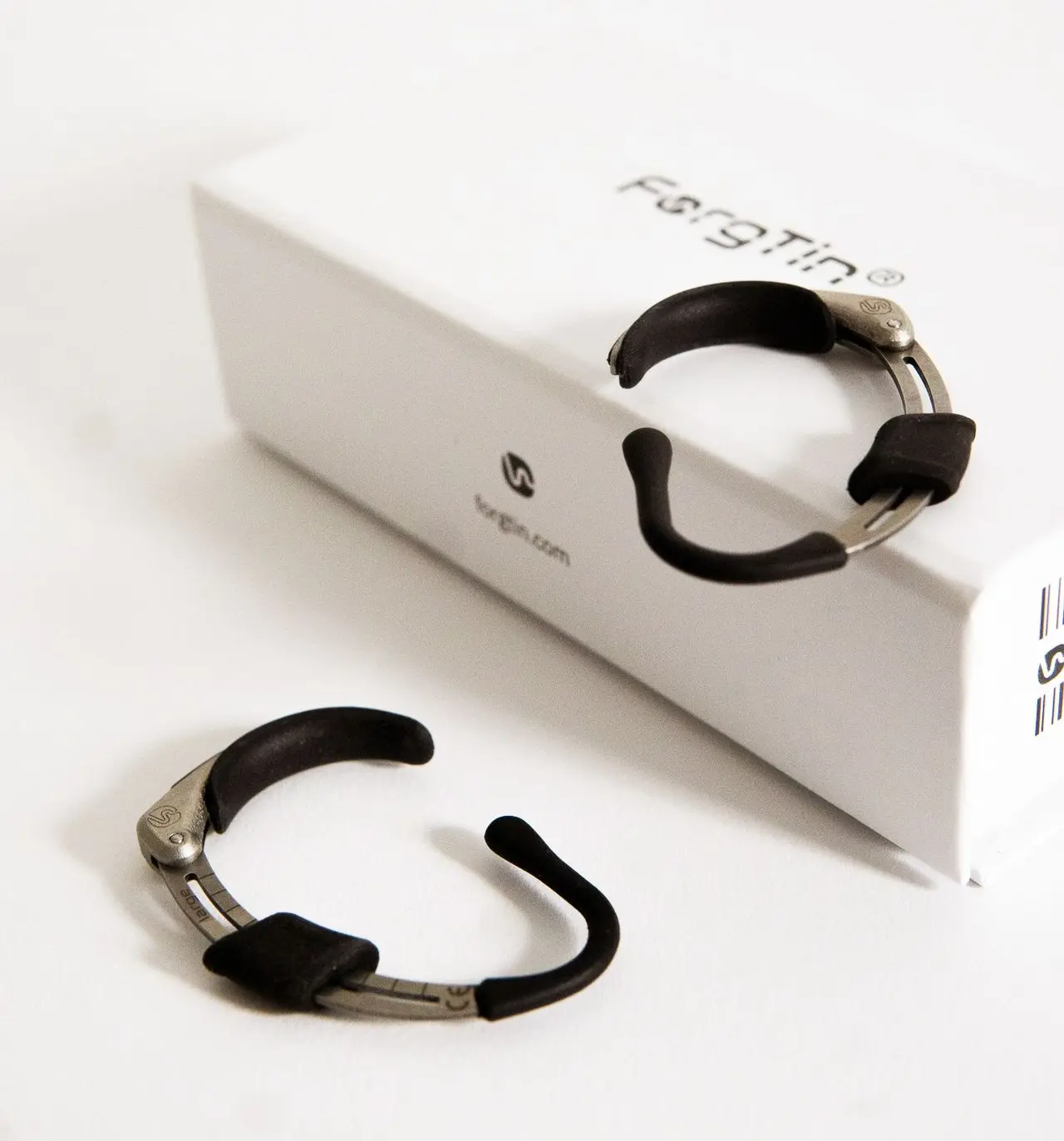What is tinnitus?
Causes, Symptoms & Treatments
Tinnitus is a widespread phenomenon that many people experience at some point in their lives. It involves sounds in the ears, such as ringing, buzzing, or whistling, that occur without an identifiable external sound source.
Although tinnitus itself is not a standalone condition, it can significantly affect those who experience it and greatly reduce their quality of life. In this comprehensive guide, you will find essential information about the causes, symptoms, and treatment options for tinnitus.
What exactly is tinnitus?
Tinnitus is medically defined as the perception of sounds or tones that can only be heard by the person affected. These sounds can occur continuously or intermittently and often change in intensity and pitch.
Some individuals hear a quiet, almost imperceptible whistling, while others report loud, disturbing sounds that interfere with concentration and even disrupt sleep.
Causes of Tinnitus - an overview
The causes of tinnitus are diverse, ranging from medical to psychological and environmental factors. Since it is a complex phenomenon, the exact cause is often difficult to identify. A deeper understanding of what exactly can trigger tinnitus can be found in our detailed article
>> What triggers tinnitus?
Medical causes
Medical causes of tinnitus may include:
- Ear diseases
- Neurological disorders
- High blood pressure
- Circulatory disorders
- Ear infections
Conditions such as Meniere's disease or sudden hearing loss can also lead to ear noises. In addition, blood pressure problems, circulatory disorders, or certain medications can cause tinnitus.
Tinnitus can also occur as a result of accident-related injuries in the musculoskeletal system, the shoulder-neck area, and the head.
Chronic shoulder and neck problems, as well as jaw issues, often lead to disturbances in the auditory system and ear noises.

Psychological causes
High acute or prolonged stress, anxiety disorders, and depression can negatively affect the auditory system and either cause tinnitus or exacerbate ear noises.

Environmental causes
Acute or prolonged exposure to loud noise is considered an environmental cause of tinnitus. Long-term exposure to loud sounds – such as at the workplace or from frequently listening to music at extremely high volumes – can cause permanent damage to the ear.
What triggers tinnitus?
Read detailed information about common causes and why these factors lead to ear noises.
Understanding tinnitus symptoms:
What does tinnitus feel like?
The perception of tinnitus varies significantly from person to person. Typical symptoms include sounds such as ringing, buzzing, whistling, humming, or hissing. Many individuals describe the sound as constant or becoming louder in certain situations, such as during silence or stress.
In addition, tinnitus can be associated with other issues, such as concentration problems, sleep disturbances, or increased sensitivity to everyday sounds..
Acute vs. chronic tinnitus:
Differences and treatment options
In general, a distinction is made between acute and chronic tinnitus:
Acute tinnitus
Acute tinnitus occurs suddenly and lasts for less than three months.
There is often a clear cause, such as acute noise exposure or an ear infection. Acute tinnitus often disappears on its own.
Chronic tinnitus
If tinnitus persists for more than three months, it is referred to as chronic tinnitus. Chronic tinnitus can significantly affect quality of life and requires an individualized, multidisciplinary treatment plan.
The optimal composition of a combined therapy requires a thorough analysis of personal influencing factors and possible causes.
Treatment of tinnitus -
What treatment options are available?
There are numerous approaches to treating tinnitus, with the choice of therapy often depending on the underlying causes and the individual situation of the affected person. In general, the treatment options can be divided into the following areas:
Medical treatments:
The medical treatment aims to address underlying diseases or damage in order to prevent further deterioration of tinnitus.
Depending on the causes and influencing factors, treatments may include physiotherapy, osteopathy, medication, circulation-enhancing measures, or surgical interventions for specific conditions.
Innovative methods such as ForgTin®:
A particularly promising method is self-treatment with the ForgTin® ear clamps. This certified medical device works non-invasively by gently stimulating specific muscles around the ear through pressure.
ForgTin® relieves
- tension in the jaw, shoulder, and neck areas,
- reduces stress,
- improves sleep quality
- promotes overall well-being and
- helps manage the challenges posed by tinnitus.
The volume of the tinnitus itself noticeably decreases over time, eventually leading to a new silence.

Psychological therapies:
Since psychological factors and stress often play a significant role in the onset or in relation to tinnitus, relaxation techniques, cognitive behavioral therapy, and active stress management are often very effective.
You can find many helpful exercises and tips in the new ForgTin®Pro-App.
Technical aids:
The most well-known technical aids may include, depending on the symptoms:
Maskers, hearing aids, neuromodulation devices, sound stimulation, and biofeedback. The mechanisms of action and their benefits vary, and their use depends on the specific challenges and symptoms experienced.
The ForgTin® earclamp proves to be particularly helpful for somatic and somatosensory tinnitus.
Read about the simple, everyday application in daily life here.
Can tinnitus be cured?
Scientific findings
A question that many sufferers wonder about is whether tinnitus can be completely cured. The answer is complex and depends on the individual triggers.
However, scientific studies show that many sufferers experience significant relief or can even become symptom-free through targeted treatments.
Therapies such as neurostimulation, retraining of perception through Tinnitus Retraining Therapy (TRT), and especially the innovative therapy approach of ForgTin® show promising results in studies.
In particular, the use of ForgTin®, a non-invasive medical device, has shown in an observational study that 85% of users experienced a significant improvement in at least one symptom within six weeks.
Remarkably, 21% of participants documented a reduction in the subjectively perceived tinnitus volume to zero. Researchers are continuously working to better understand how tinnitus develops in order to develop new treatment methods that could make a cure more likely in the future.
Tinnitus research and scientific findings
CONCLUSION: Living with Tinnitus
Living with tinnitus can be challenging, but it is by no means hopeless. With the right strategies and treatment approaches, daily life can be significantly improved for many sufferers. It is important to take action early and find the most suitable combination of therapies from the various treatment options available for the individual's tinnitus.
The combination of medical treatments, psychological support, and technical aids often offers the best chances of success. In addition, lifestyle changes such as stress management, a healthy diet, and regular exercise can contribute to alleviating the symptoms.
Tinnitus does not have to control your entire life. With patience, knowledge, and the right approach, it is possible to regain control and sustainably improve your quality of life.


